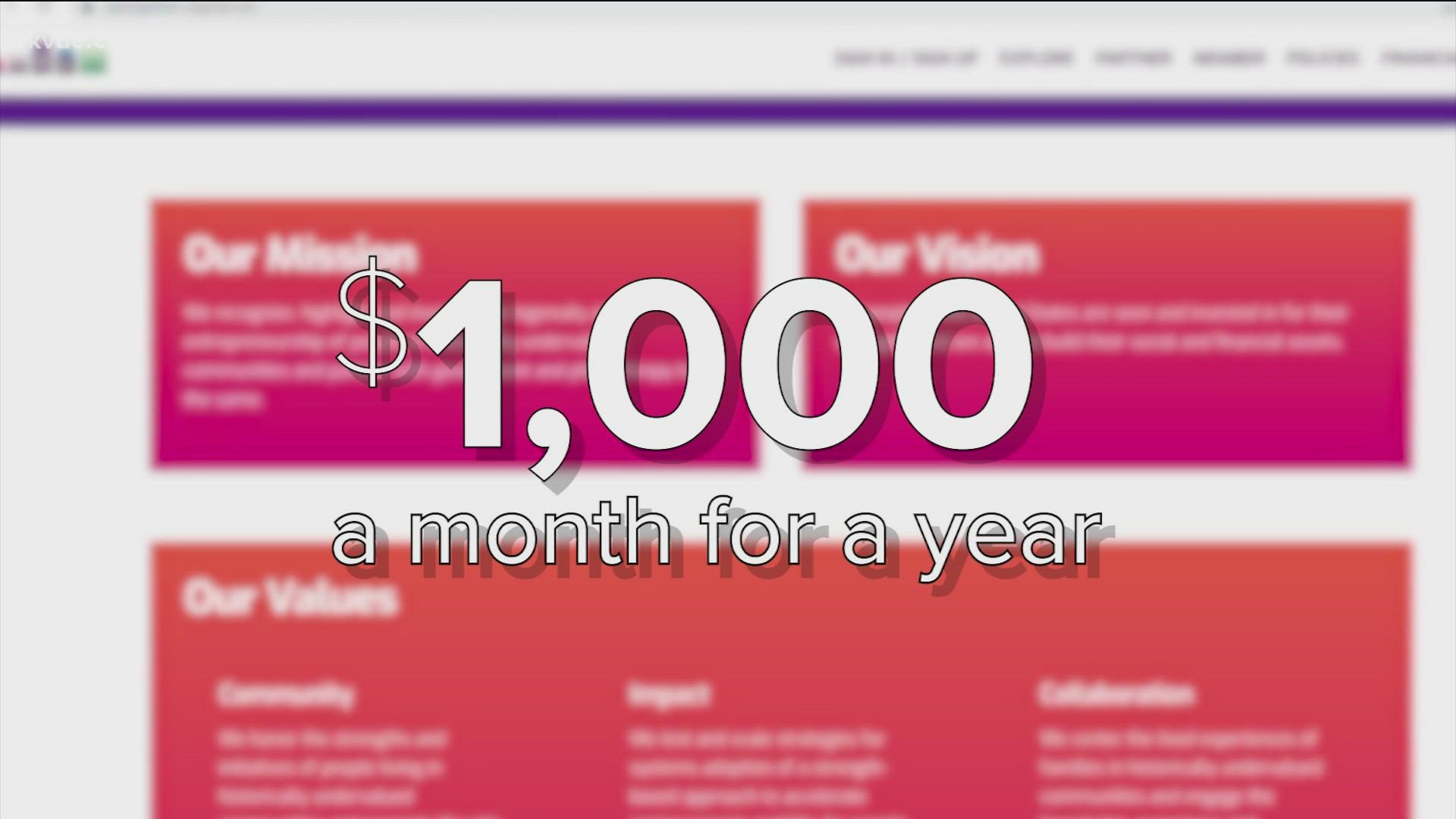AUSTIN, Texas — The Austin City Council on Thursday approved on consent a program that would identify dozens of families in the city and give them $1,000 per month, no strings attached. A memo sent to city council members outlines more details of the proposed pilot.
Councilmembers discussed the pilot program on Thursday, April 21, at a meeting. According to the item on their posted meeting agenda, the vote would authorize the negotiation and execution of a contract with UpTogether, a nonprofit out of California.
According to a report from KVUE's news partners at the Austin American-Statesman, the council declined to authorize the plan in April and instead elected to accept a two-week delay to again consider it on May 5.
The plan directs UpTogether to distribute no more than a total of $1,180,000 to needy families for one year as part of the pilot program. The nonprofit helps connect underprivileged communities with the resources they need to thrive economically and socially.
The Statesman reported that the money would come from taxpayer dollars and would be distributed to 85 families on a monthly basis. As opposed to programs like SNAP benefits, the families would be able to spend it how they wish, whether that be food, housing or child care.
The Statesman reports that the program would likely begin in the summer. Of the total cost, the Statesman said $1.02 million would go to the 85 families and $160,000 would go to the nonprofit for their work.
According to the memo sent by the City of Austin's chief equity officer on May 2, the potential selection process for eligible families was outlined. The office may use the following criteria to determine which families to choose:
- Households with an eviction filing against them
- Households with a pattern of missed utility bill payments
- People experiencing homelessness who have been identified for supportive housing
The equity officer said they have identified the Urban Institute to evaluate the success of the pilot. The Urban Institute will measure the pilot based on the following criteria:
- Financial stability: The ability of a household to cover a $400 emergency bill and the ability to pay bills on time
- Health and wellness: Improvement in stress levels and the ability to receive preventative care, as well as food security
- Increase in work shifts, participation in workforce or education programs, or other income changes
- Whether funds are used for things like food, transportation and housing
- The ability to pay bills without having to borrow from friends or relatives
- "Ability to live fully," measured by things like being able to cook more meals or pursuing hobbies and interests
The equity officer stressed that programs like this are money well-used and help lift people out of financial struggles.
"Studies and program evaluations have shown that one of the most effective and efficient methods to assist households in advancing economic development, public health, and public safety is the use of direct cash assistance programs which put the decisions for utilization of funds into the hands of those directly impacted," the memo said.
In fact, the memo went on, when the City of Austin distributed tens of millions of dollars to community members impacted by the pandemic in 2020, more than 90% of that money went to the basic needs of the households.
The city council vote comes as a lack of affordability continues to plague Austin and its residents.
The pause on evictions in Austin ended in March, and one tenant advocacy organization said they're seeing evictions rise to pre-pandemic levels.
In a recent report from the personal finance website, MoneyGeek, experts took a look at changes in homeownership costs and median incomes from 2019 to 2022. On the list, 26 counties throughout the U.S. were revealed as no longer having an affordable housing market. Travis and Williamson counties made No. 3 and 4 on the list.
Lana Gibson Alexander is a mother of four, and grandmother of six. She has lived in Austin for 33 years. She took part in pilot program last year with UpTogether, where she received $1,000 for a year. She said it really helped as she was facing eviction.
"There is an increase in gas prices, rent, cost of living and itself has increased,” said Alexander.
She said with this funding, she was able to get by and also support her two sons who are in their 20s who are living with her. They faced eviction.
Alexander believes the funding will help others like it did her.
"I know for a fact it’s going to be life changing, its going to have a huge positive impact,” said Alexander.
PEOPLE ARE ALSO READING:

